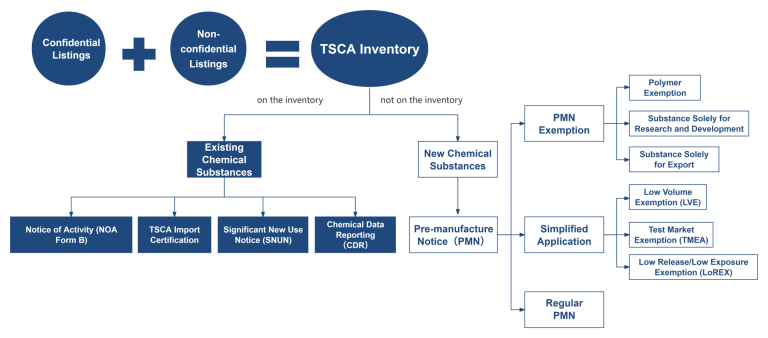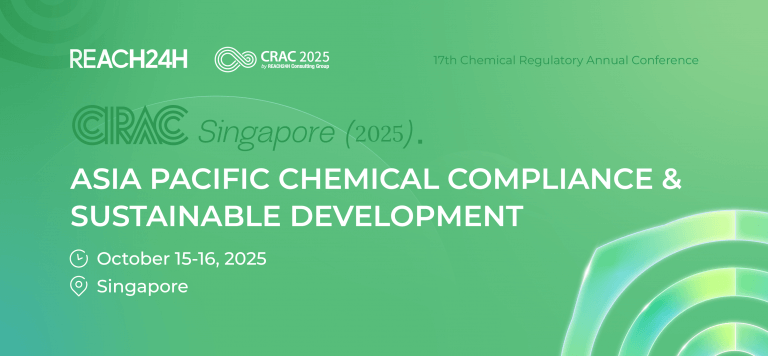Introduction
In recent years, with increasing global attention on sustainable development and environmental protection, biopolymers have emerged as a promising alternative to traditional plastics, demonstrating immense potential in the global market.
However, navigating regulatory frameworks like the U.S. Toxic Substances Control Act (TSCA) presents unique challenges. This article delves into TSCA compliance for biopolymers, focusing on polymer exemption criteria and the specific molecular identity of bio-based materials, providing essential insights for companies entering this dynamic market.
What Are Biopolymers?
Globally, there is currently no unified, legally binding official definition for the term "Biopolymer." Different countries or organizations define and classify related concepts based on their regulatory objectives, research focus, or industry practices.
In academia and scientific literature, "biopolymer" typically refers to:
Polymers directly produced by living organisms (e.g., plants, animals, microorganisms).
Macromolecules formed through polymerization reactions using monomers of biological origin. This sometimes also includes "bio-based" synthetic polymers, as long as their monomers are derived from biomass.
Despite the lack of a globally unified legal definition for "biopolymer," the core concept is clear: polymers derived from living organisms or renewable biomass.
TSCA Compliance Requirements for Polymers
However, the U.S. Toxic Substances Control Act (TSCA) does not provide special exemption pathways for "biopolymers" or "bio-based polymers." These polymers, like all other chemical substances, must follow the basic TSCA compliance determination process:

The determination process is as follows:
Determine if the polymer is subject to TSCA regulation based on its intended use.
Determine if the polymer is listed on the TSCA Inventory based on its identity information.
If it is a new substance, determine if it meets the polymer exemption criteria.
If it does not meet the polymer exemption criteria nor other exemption conditions, then a new substance notification (such as PMN or LVE) must be submitted.
Polymer Exemption Requirements under the U.S. TSCA
Meets the definition of a polymer:
Meets number-average molecular weight (Mn) and oligomer content requirements:
Mn ≥ 1,000 Daltons and < 10,000 Daltons, with restrictions on oligomer content and reactive functional groups.
Mn ≥ 10,000 Daltons, with restrictions on oligomer content.
Does not meet "exclusion criteria":
Cationic polymers.
Polymers containing specific elements, such as heavy metals.
Polymers that degrade, decompose, or depolymerize.
Polymers where monomers and reactants are not on the TSCA Inventory and constitute > 2%.
Water-absorbing polymers with Mn ≥ 10,000.
Polymers containing perfluoroalkyl moieties, such as CF3- or longer hydrocarbon chains, as an integral part of their composition (except as impurities).
Polymers that meet the polymer exemption criteria do not require a new substance notification (such as PMN or LVE). However, companies must still comply with other TSCA requirements, such as import certification during customs clearance, the January polymer report after the first import activity, and five-year recordkeeping for polymer data.
U.S. TSCA Compliance Requirements for Biopolymers
In recent years, as the concept of green sustainable development has become increasingly popular, more and more companies are investing in the innovative production of bio-based chemicals. For example, microbial fermentation chemicals are actively sought to replace traditional petroleum-based chemicals, driving the market towards sustainability.
Next, we will use microbial fermentation chemicals as an example to discuss the key compliance points for biopolymers under TSCA (U.S. Toxic Substances Control Act):
First, note: Not all bio-based polymers are degradable.
Degradable polymers fall within the "exclusion criteria" for the polymer exemption. Therefore, if they are new substances, they must undergo a new substance notification (such as PMN or LVE) and receive approval before being imported into the U.S..
Additionally, note: The "specific molecular identity" of microbial fermentation chemicals.
Although TSCA's definition of "chemical substance" is based on "specific molecular identity" , the regulatory practice for polymers or UVCB substances is more complex. For these substances, the chemical name on the TSCA Inventory may include the identity of their source material, the nature of the manufacturing or processing method, predominant components, or physical data. This means that the regulatory definition of a substance on the Inventory may implicitly or explicitly rely on its synthetic origin.
Therefore, demonstrating that a fermentation-derived polymer is "identical" to a purely synthetic substance already on the Inventory faces a higher bar, as its biological origin itself may be a distinguishing factor for the U.S. Environmental Protection Agency (EPA).
REACH24H's Advice
Under the TSCA regulatory framework, the basic requirements for biopolymers do not differ significantly from those for ordinary polymers. However, the definition of "specific molecular identity" for "biological materials" presents unique compliance challenges for businesses.
Given this, REACH24H advises companies planning to import biopolymers into the U.S. to accurately determine whether their products meet the polymer exemption criteria. If a new substance notification is required, companies should fully prepare and carefully collect substance identity-related information before submission, including but not limited to:
Detailed information on biological origin: Clearly specify the type of biomass, its source, and processing methods.
Composition of other raw materials: Clearly list all auxiliary materials and chemicals involved in production, in addition to biological sources.
Description of the production process: Detail the entire production flow from raw materials to the final polymer, including key reaction steps and conditions.
Thorough preliminary preparation will help companies navigate TSCA compliance requirements more smoothly and reduce potential risks.
If you have any questions in this regard, please feel free to contact us at customer@reach24h.com.





